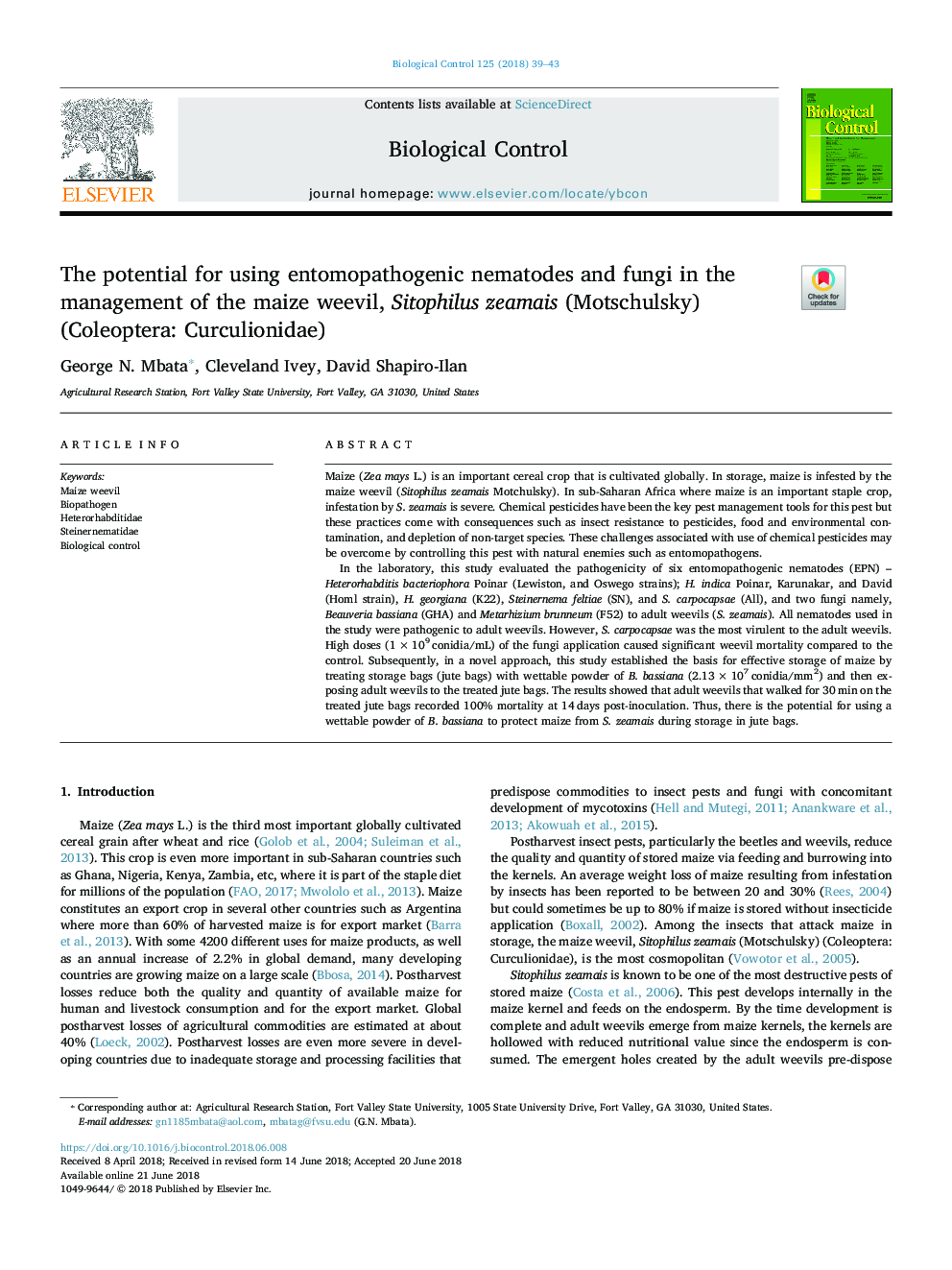| Article ID | Journal | Published Year | Pages | File Type |
|---|---|---|---|---|
| 8877541 | Biological Control | 2018 | 5 Pages |
Abstract
In the laboratory, this study evaluated the pathogenicity of six entomopathogenic nematodes (EPN) - Heterorhabditis bacteriophora Poinar (Lewiston, and Oswego strains); H. indica Poinar, Karunakar, and David (Homl strain), H. georgiana (K22), Steinernema feltiae (SN), and S. carpocapsae (All), and two fungi namely, Beauveria bassiana (GHA) and Metarhizium brunneum (F52) to adult weevils (S. zeamais). All nematodes used in the study were pathogenic to adult weevils. However, S. carpocapsae was the most virulent to the adult weevils. High doses (1â¯Ãâ¯109â¯conidia/mL) of the fungi application caused significant weevil mortality compared to the control. Subsequently, in a novel approach, this study established the basis for effective storage of maize by treating storage bags (jute bags) with wettable powder of B. bassiana (2.13â¯Ãâ¯107â¯conidia/mm2) and then exposing adult weevils to the treated jute bags. The results showed that adult weevils that walked for 30â¯min on the treated jute bags recorded 100% mortality at 14â¯days post-inoculation. Thus, there is the potential for using a wettable powder of B. bassiana to protect maize from S. zeamais during storage in jute bags.
Related Topics
Life Sciences
Agricultural and Biological Sciences
Agronomy and Crop Science
Authors
George N. Mbata, Cleveland Ivey, David Shapiro-Ilan,
